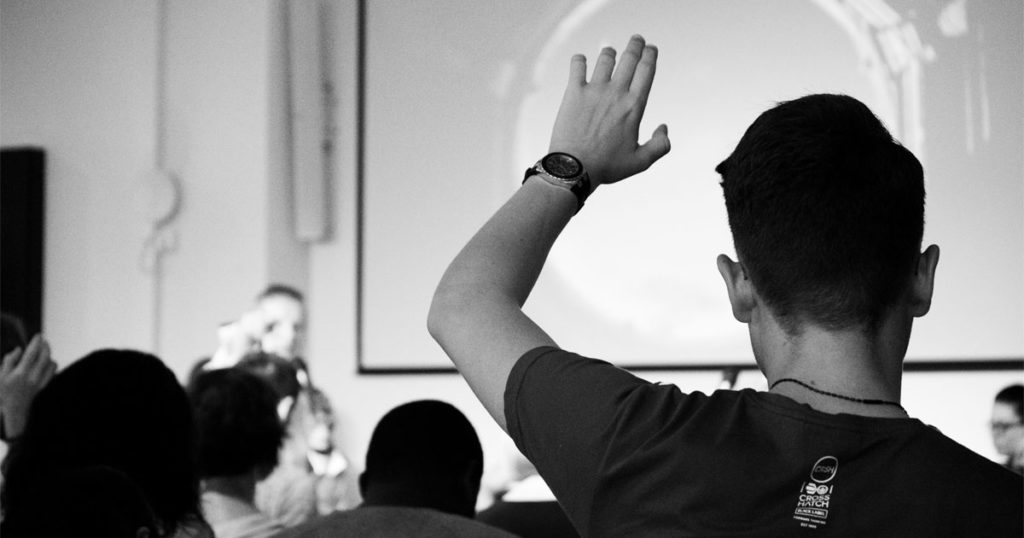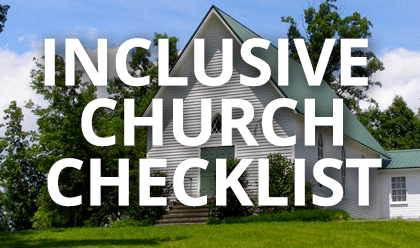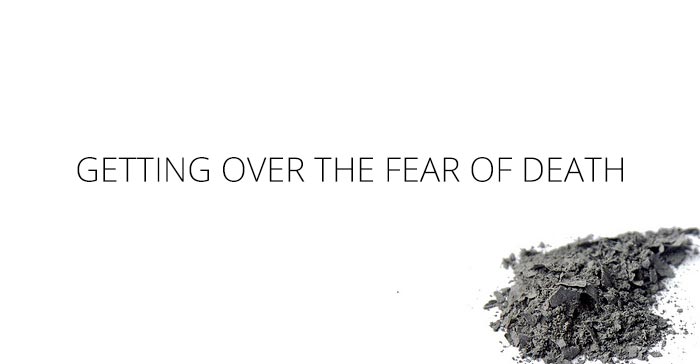Standing In My Power
Standing up for yourself is a form of justice work.
I like to please people, I like to make people happy, and I hate conflict. I easily pick up on other people’s moods and feelings, sometimes without them having to say a word. I’ve lived my life in this mode; and I’ve told myself that this way of being makes me a good priest and a good friend.
Recently I’ve been learning that not only is it deeply unhealthy for me to live this way, but it’s also not healthy for the people I minister to.
My life of people pleasing and avoidance of conflict comes at a deep personal cost. I spent years not speaking my truth in order to keep people happy. I avoided confronting people who are unhealthy and harmful because I wanted them to like me and be happy.
I stayed in situations and relationships and jobs much, much longer than it was healthy because I didn’t want to disappoint anyone or let anyone down. I spent time running through the 101 of trans identity, answering invasive and inappropriate questions, and doing people’s work for them.
And I thought this made me a good pastor, a good employee, a good teacher, a good friend, and a good person.
After all, I worked hard to make people happy and to do my job. After all, I was relentlessly loyal no matter what the cost. After all, it’s a pastor’s job to make people happy and comfort them. After all, if I don’t educate people about transgender issues how will they learn? After all, if I’m not nice all of the time (even when someone is being harmful or abusive), how will they know to change?
All of the “After All” statements above are patently untrue. This behavior helps no one. My fear, my avoidance of conflict, my refusal to set boundaries, helps no one. When I try extra hard to be nice all of the time, even when someone is being insulting or hurtful, this behavior hurts us both. Not only that, but my refusal to stand up for myself, to set boundaries both in my personal life and in my community, to say the hard truths, enables other people to remain in bad and unhealthy behavior.
Here’s what these behaviors look like in my life:
I’ve made myself available at all times and to all people no matter how burnt out I was
I’ve agonized over every piece of criticism even when I knew it was completely unfounded
I’ve spent hours explaining myself and trying to make people understand my decisions even when I was clear the first time
I’ve agreed to meet or speak with people even when I have felt unsafe in an effort to educate them
I’ve felt like I owed my time and attention to every single person that demanded it
I’ve said my truth and when I got pushback waffled and tried to hedge so as not to make anyone angry
I’ve tried to mold my actions, ideas, and more in order to make them more palatable to people
I’ve taken in the brunt of people’s emotions and thought that I had to absorb them
I’ve held myself responsible when people reacted to me with anger or by lashing out and tried to figure out what I had done wrong
I have ignored my intuition about people and given them second, third, fourth chances even when I felt from the get-go that they were toxic individuals (and chalked this up to good Christian duty)
I’ve ignored my intuition about people, situations, and environments that are unsafe in order to be what I thought was kind, generous, and giving.
This list could go on and on…
I’ve kept up with these things because I thought they made me mature and noble and empathetic and a good priest, even as they were eating away at me and keeping me from developing my own spiritual life and moving the ministries I am involved in toward greater health and growth.
Do you recognize any of this? Do you see these patterns in your own life?
I’m learning that I cannot manage people’s emotions for them. I cannot make them want to be healthy. I cannot make people want to grow or change or invest in things. I cannot control how people will respond to honesty or to my setting of boundaries.
What I can do is live honestly and authentically. I can set boundaries and honor them. I can be firm in my commitment to the truth and to my own spiritual, mental, and physical well-being. I can be committed to my own growth and education. I can be a non-anxious and self-differentiated leader (thanks to Edwin Friedman for those concepts. His book A Failure of Nerve is brilliant.) What I can do is learn and work on disentangling myself from other people’s reactions and emotions.
So these days I am trusting my gut. I am saying “No” to people and situations that are harmful.
I am setting boundaries and sticking to them.
I am speaking the truth in love and then refusing to justify myself when it’s not warranted.
I am refusing to get sucked into the emotional circles of other people.
I am learning my own weaknesses and working on them privately and with trusted friends so that they don’t come out in unhealthy ways in my congregation.
I am staying away from drama at all costs.
I am learning what emotional health looks like in my own life and how to keep from being dragged into emotionally unhealthy relationships.
I am saying “No” to more people and more opportunities so I can focus on the opportunities and people that are life-giving to me and where I really think I can make a difference.
What might you do to break out of these behaviors and patterns?
- Spend some time figuring out what gets you stuck or hooked into emotionally unhealthy relationships and how you might get unhooked. (As an example, for me it’s the fear of not being liked.)
- Find trusted friends who can help you think through criticism you receive so that you know what to listen to and what to discard.
- When something comes up, take some time before responding. You don’t owe anyone an immediate response.
- Listen to your gut: if someone or some situation feels unsafe, you can say no to it.
- Know that you don’t owe anyone your time or attention. You can say no without feeling guilty.
- Know that it’s okay to set boundaries and stick to them and that it’s okay to ask other people to respect your boundaries.
- Release yourself from being responsible to how other people react to you.
This is hard work. It’s hard internal work. It goes against my nature as a people-pleaser. It means that sometimes people will hurl accusations against me that are hurtful (that I’m mean, stuck up, arrogant, an asshole, a control freak, etc.) when in reality I am standing up for myself and working on emotional health and maturity. All of this means that I will disappoint people and probably make people angry (both things I hate to do). But it also means that I will be healthier, stronger, a better leader, less burnt out, and more able to do the ministry that I am called to do. Growth is a hard and painful thing, but I am learning that it’s very much worth it.
Your journey might not look exactly like mine; we all have our own emotional processes and places where we get sucked into toxic situations just as we have different needs around boundaries and how to get out of those situations. But we all have to do the work in order to be healthy and whole people and to protect our own hearts and minds as we move through the world.
Doing this work is all about standing in your own power: Standing in your power to define yourself. Standing in your power to set the boundaries that cause you to feel and be respected. Standing in your power to protect yourself.
Where do you need to stand in your power?
Photo by michaelkowalczyk.eu




